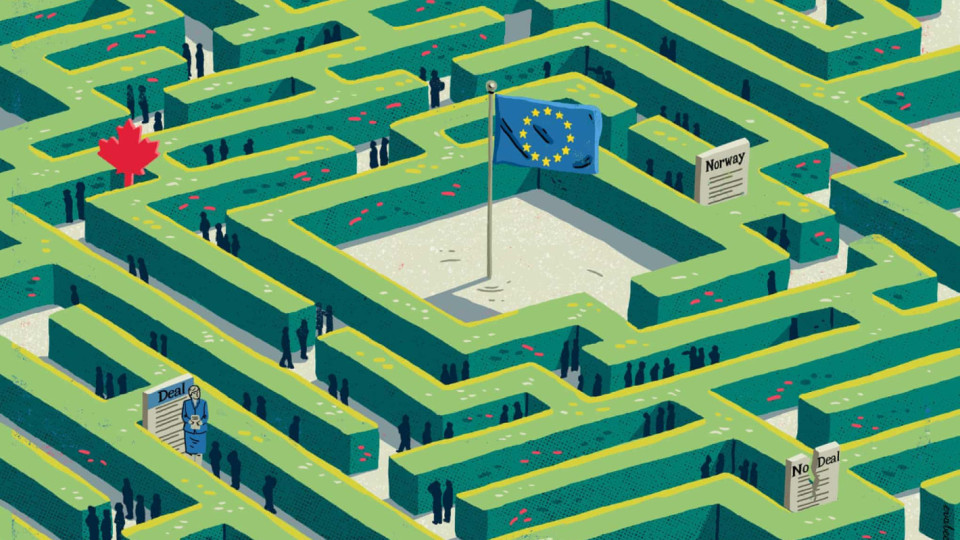
The Britain of 2019 is never again the Britain of 2016. Postponement and lingering have permitted all alternatives back on to the table
As far back as Britain casted a ballot to leave the European Union in June 2016, two things have been clear. No genuine endeavor to turn around or even moderate the leave choice could ever be uncontroversial. Also, any such endeavor would require a level of present authenticity that could be procured just in the light of new occasions and with the progression of time. The inquiry today is whether we have now achieved such a minute.
Extremely obviously, there was no such minute in the prompt result of the 2016 choice. It would have been too early. It would have been simply a fit of shock. The voters had just barely communicated their will. No legislature could oppose that choice, regardless of whether it had needed to. Theresa May appropriately got a handle on that she had turned out to be head administrator with a command to convey on the vote.
However that would never be the finish of the issue. Three basic things have guaranteed that even a more grounded and more gifted government than this one would battle to do what May needed. The first was the trouble of pleasing any irregular choice inside a political framework dependent on parliamentary sway. The second was the general decision in 2017, which denied the administration of a greater part. Furthermore, the third was the profundity and broadness of the 40 or more long stretches of entwining of the UK and the EU, which would require long periods of point by point medical procedure to isolate.
More than two years on, things are, obviously, rather extraordinary. The open mind-set has moved fundamentally, however not definitively, against Brexit. A lot of that move is down to the way May has taken care of the issue – her extremist red lines, her hesitance to connect – just as the inescapable mileage that starts to influence any prime ministership. A touch of it is additionally down to superfluous occasions, for example, the effect of Donald Trump, the development of crowd legislative issues all the more by and large and the granulating flexibility of low monetary development crosswise over Europe. A large portion of it, however, is just an element of a Brexit timetable that directs irreversible results after 29 March – and subsequently focuses minds.
A few voters will at present be insulted, about three years on from the submission, by the scarcest recommendation that any part of the administration's methodology can be addressed, it doesn't mind that the whole Brexit choice may be up for reexamination in a second choice. That threatening vibe remains a monstrous factor that can't be disregarded by the individuals who need a milder Brexit than the administration looks for, or who need no Brexit by any means. Nor is it overlooked. It is the ever-present remark to any and each Brexit discussion or judgment.
Be that as it may, the world, and legislative issues, never stop. It isn't only unfairness, as the negative French representative Talleyrand once put it, it is mainly a matter of dates. A similar thing goes for political goals of each sort. There is a period and a spot for everything. Almost certainly, February and March 2019 would be the point at which the individuals who need to moderate or turn around Brexit would have their most obvious opportunity with regards to progress. It was constantly likely that these last a long time of the article 50 process would give Brexit's high-early afternoon minute. What's more, that is definitely where we get ourselves now.
It is normal to be disappointed by the successive deferrals in this conclusion. In any case, you battle a fight just when you have the most obvious opportunity with regards to winning. That is valid on all sides, regardless of whether star or hostile to Brexit. At some point or another there must be a fight, or fights. They can't be vastly delayed. Brexit should either happen on 29 March or not. On the off chance that it takes place, Brexit's terms must be settled in some structure or another, or none.
So the way that this week took a gander at one phase to be an essential minute however turned out rather to be a touch of a disappointment ought not divert from the principle issue. This week, expecting that more Conservatives could join the independents, May figured out how to purchase more time from the Tory party by her essential confirmation that the 29 March due date might be missed and that the article 50 procedure may must be expanded if the administration loses its arrangement B vote on 12 March. Purchasing time is the thing that May does.
However the expansion of article 50 is conceivably a watershed concession. May's affectation is this is only a little issue, a tad of included time in light of unforeseen robberies. She talked again on Wednesday of such an expansion being short and constrained. That is just a farfetched position. It accept that the augmentation would just be to ensure that MPs at last give their endorsement to a correction of her unique arrangement and for putting this on the fundamental administrative establishment.
By and by, it shows May imagining – as she generally does – that nothing would truly have changed. However in all actuality everything may have changed. May's whole Brexit system is currently being kept alive by two things. The first is her reliable inclining to the directly so as to keep Conservative MPs onside behind her Brexit plan. The second is her expectation that the lawyer general, Geoffrey Cox, can concur some type of lawful wording with the EU to empower him to change his recommendation that the Northern Irish barrier could be a lasting authorization. In the event that he changes his recommendation, ace Brexit Tories and the DUP might be convinced to back the arrangement.
Be that as it may, the two pieces of this are smoke and mirrors. In excess of 100 MPs in May's gathering contradict her Brexit system. Also, if Cox gets the type of words that May hungers for, it will be the main change from the arrangement An on which May was trounced in January. That doesn't consequently imply that the Tories who casted a ballot against plan A won't vote in favor of plan B either. Yet, it clearly implies that if May loses on 12 March, and particularly on the off chance that she loses gravely, she will have no arrangement C to put in its place. Expanding article 50, at the end of the day, would mean grasping another way to deal with Brexit.
There are a few alternatives here. A second choice, offering a decision between an arrangement (perhaps May's) or staying in the EU may be one, particularly since Labor has moved its position this week. A more probable methodology would include the European organized commerce zone style course of action that bureau clergymen, for example, Amber Rudd and David Gauke would favor, however it would include May destroying her red lines. Or then again May could endeavor to design a general race in the conviction that Jeremy Corbyn's stock is presently unreasonably low for him to pull off another unexpected like 2017's.
These alternatives are potential outcomes. The greater part of them would require more than the short augmentation May makes reference to – it would be months, not weeks. None of them can be expelled as total dream. However every one is an extreme move from the presumption of 2016 that May's way was the main way. Mostly that is May's blame. Be that as it may, the Britain of 2019 is never again the Britain of 2016. Work's day of work on a second submission is a piece of that. So is the extremely open revolt by Rudd and her partners. The progression of time implies the breaking points of the conceivable have changed so profoundly that no Brexit, however not a sureness, is currently a genuine probability.











Leave a comment